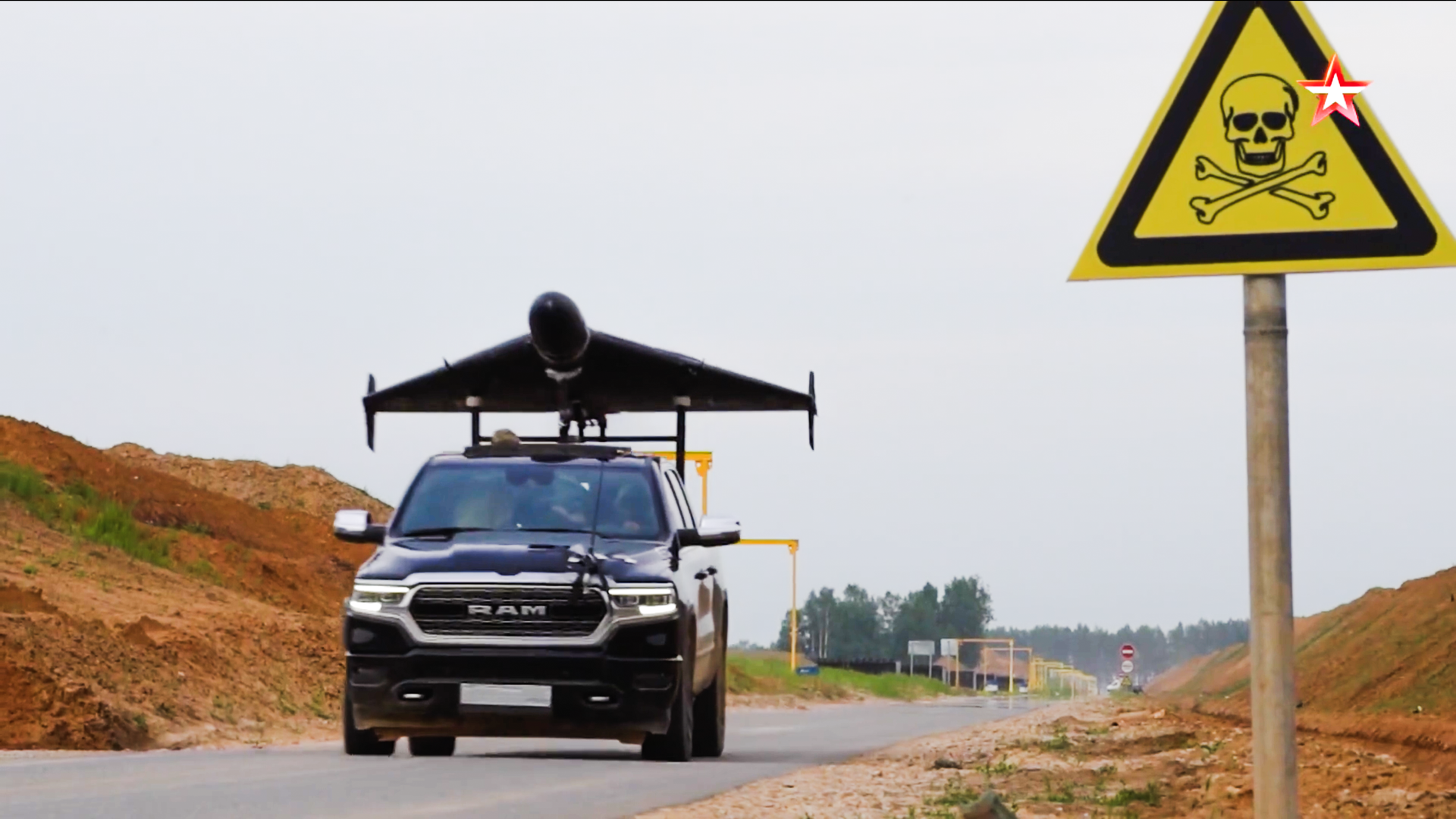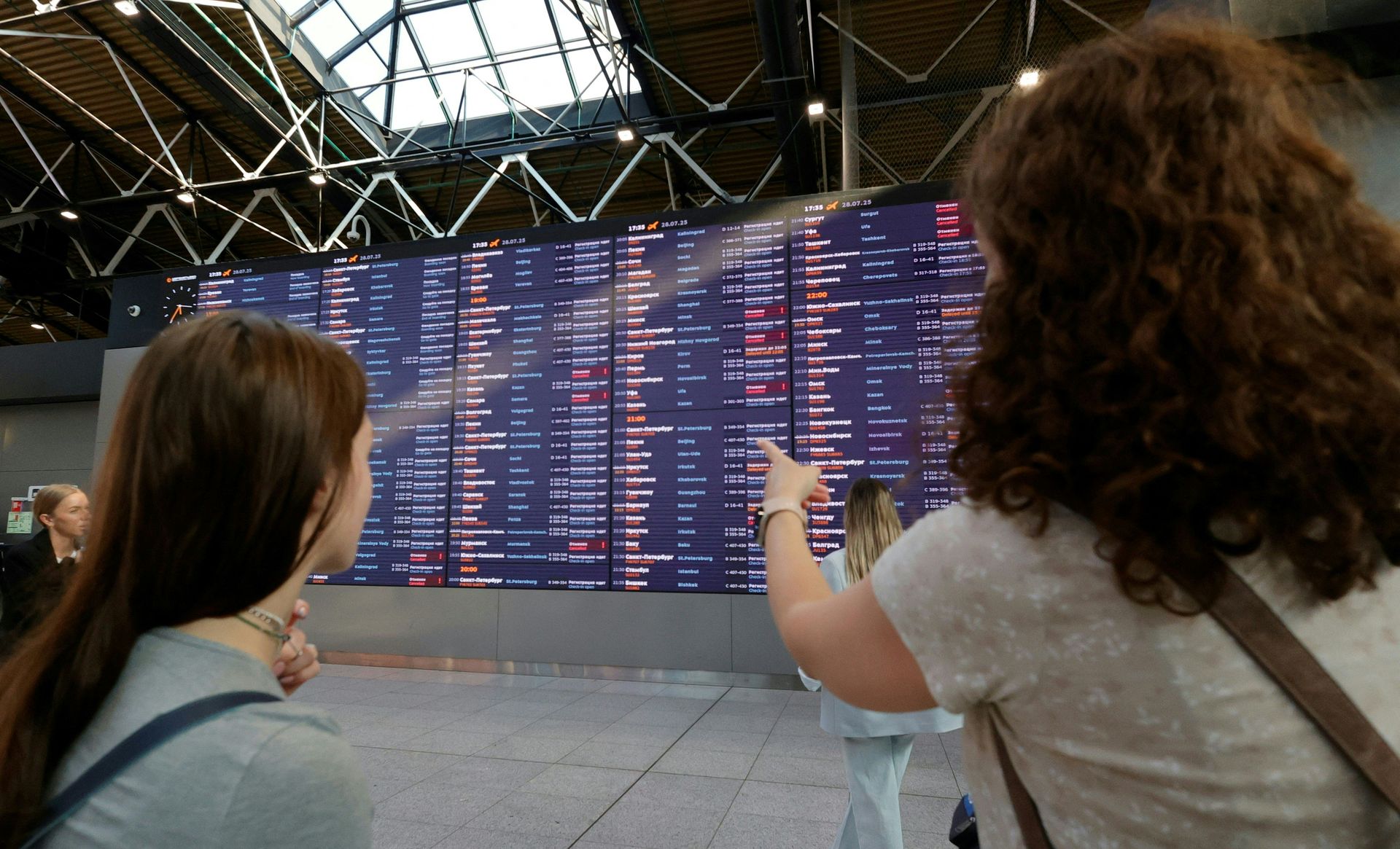Moscow cancels Navy Day parade in St. Petersburg as nearly 100 drones reportedly downed across western Russia

Editor's note: This story was updated to include the cancellation of Russia's Navy Day parade and U.K. intelligence comments.
Russia canceled its annual Navy Day parade in St. Petersburg for the first time, citing security concerns amid a wave of drone attacks that disrupted airports and railways across western Russia overnight on July 27, local officials and Russian media reported.
The decision to cancel the Navy Day parade in St. Petersburg, an event traditionally held on the last Sunday of July, was announced by Kremlin spokesperson Dmitry Peskov on July 27, who said it was made "for security reasons."
Despite the cancellation, Russian President Vladimir Putin reportedly traveled to the city to mark the occasion.
The United Kingdom's Defense Ministry said it is "almost certain" that Navy Day parades originally planned for July 27 were canceled across Russia due to force protection concerns. While the main naval parade in St. Petersburg was reduced in scale in 2024, this marks the first full cancellation since its inception in 2017.
Russia has reported a growing number of drone incursions into its territory in recent months. While Kyiv has been targeting infrastructure critical to Russia's war effort, Moscow has significantly intensified missile and drone attacks on Ukrainian cities, frequently targeting civilian infrastructure and causing numerous civilian casualties.
In Leningrad Oblast, dozens of flights were delayed at Pulkovo Airport in St. Petersburg after local authorities reported a wave of drone interceptions in the early hours.
Governor Alexander Drozdenko confirmed that drones were downed in several districts, with debris reportedly falling in residential and industrial zones.
Drozdenko claimed that Russian air defenses intercepted "more than a dozen" Ukrainian drones. In Lomonosovsky district, according to Drozdenko, debris from an intercepted drone injured one person.
In Russia's Volgograd Oblast, drone debris reportedly damaged a railway's overhead power supply system, disrupting electrical infrastructure.
Governor Andrei Bocharov blamed Ukraine for the attack but reported no injuries. Local Telegram channels shared footage suggesting a substation fire may have contributed to the outage.
The Privolzhskaya Railway reported that train service was delayed at Zhutovo Station due to falling drone debris. Trains connecting southern resort towns and central Russian cities were affected by delays of over two hours.
Kaluga Oblast, located southwest of Moscow, was also targeted, with flights reportedly disrupted at the regional airport. Other affected airports included Volgograd and Pulkovo, where at least 70 flights were reportedly delayed.
The Russian Defense Ministry claimed its air defenses intercepted or destroyed a total of 99 drones overnight. Among them were 36 launched at Bryansk Oblast, 21 at Smolensk, 10 at Kaluga, and nine each at Volgograd and Rostov.
Additional drones targeted occupied Crimea, Voronezh, Kursk, Moscow, Nizhny Novgorod, Oryol, Tambov, and the Black Sea coastal area.
Ukraine has not officially commented on the attack. The Kyiv Independent could not independently verify the reports.













